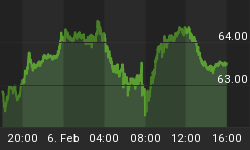Just a few weeks ago, most financial analysts continued to insist that the road to recovery stretched far into the future. Now, uncertainty has returned with a vengeance and the stock market has booked its first official 10% correction since this tenuous 'bull' market began in the spring of 2009.
In recent days, markets have shown signs of life - but nascent rallies have been quickly smothered. I believe there are five fundamental reasons for this persistent uncertainty.
First, the world's second most held currency, the euro, is threatened with possible extinction. The massive $750 billion bailout package for Greece will not cure Greece's dependence on entitlements, and will likely only buy time until a debt restructuring.
The world is looking to major nations such as the United States, Germany, and even the United Kingdom to backstop the likely future funding obligations of bankrupt states such as Spain, Portugal, and Italy. However, these so-called 'major' nations have little or no money; they themselves have borrowed massively.
The only real savior available for the euro is China. So, you can imagine the feeling in Brussels when the Financial Times reported this week that the Chinese government is "reviewing" its euro holdings in light of the spreading debt crisis.
It is now dawning on investors that the euro may be down for the count. As a result, key support levels for the currency are giving way.
Second, there is deep concern among investors that a lurching socialism may change Western economies fundamentally. Just this week, it was announced that the percentage of US personal income coming from private sector earnings hit an all-time low... just 41%! As a corollary, the percentage of income coming from direct government payments has risen sharply in recent years and is now at an all-time high. To support the growing welfare state, taxes on society's dwindling producers must increase. This is no way to grow an economy - and investors know it.
Third, rates at which banks and finance houses lend to each other are rising. Although central banks continue to hold short term rates low, stoking ever more consumer borrowing and spending, businesses are increasingly starved for credit.
Fourth, it is increasingly clear that America's political class is targeting the financial industry. The machinations of the financial sector are almost universally blamed for the economic crisis, whether on CNN or C-SPAN. The politicians 'investigating' the 'greed' of Wall Street appear to be motivated more by revenge than risk reduction. With unabashed distortion of the facts, politicians forget that it was Congress that repealed the Glass Steagall Act (a set of regulations made necessary by government deposit insurance), pushed mortgage lenders Freddie Mac and Fannie May to lower their loan requirements, and approved entitlement programs that have sapped productivity from the American economy.
They forget that it was the Federal Reserve that injected trillions of monopoly dollars into the world economy to rescue Washington from the last recession it created. These massive strategic errors were the direct fault of the US and other Western governments.
Facts aside, vengeful Congressional legislation could place Wall Street at a serious competitive disadvantage compared to other financial centers such as London, Switzerland, Dubai, Singapore, and Hong Kong. In addition, inefficiencies caused by over-regulation could do serious damage to Main Street.
The fifth factor spooking markets is Germany's reaction to the euro crisis. The government unexpectedly resorted to the same 'protective' regulations employed by the US in 2008, including banning naked short sales of the securities of select financial houses. In America, this type of measure fanned widespread suspicion that the government was worried about the prospects of the firms it selected for special protection. Many German banks have major exposure to Portugal, Italy, Greece and Spain (a.k.a. the PIGS). It is not surprising that the German government has tried to shield them from market punishment, but the measure is likely to backfire.
The combination of these factors leaves little wonder that investor confidence is falling and the volatility index is rising. Unfortunately, as the Western world comes apart at the seams, no government is making a serious effort to repair the damage.
Please note: Opinions expressed are those of the writer.
For in-depth analysis of this and other investment topics, subscribe to The Global Investor, Peter Schiff's free newsletter. Click here for more information. Click here for a description of Peter Schiff's best-selling, just-released book, How an Economy Grows and Why It Crashes.















